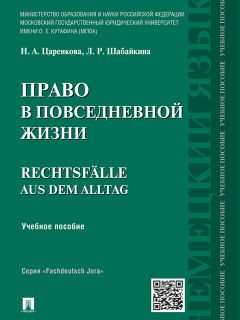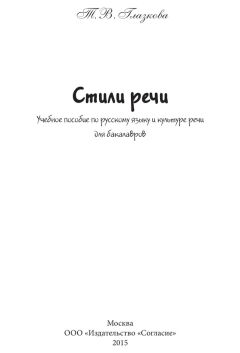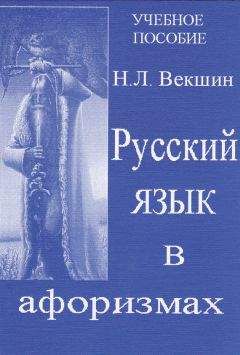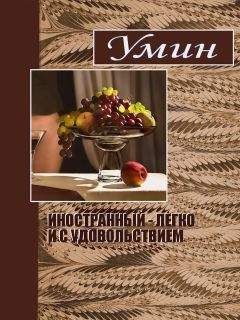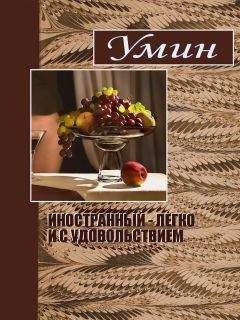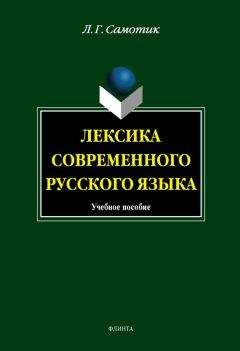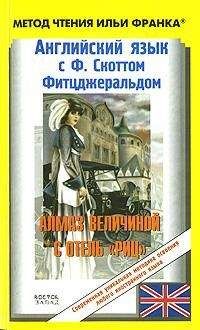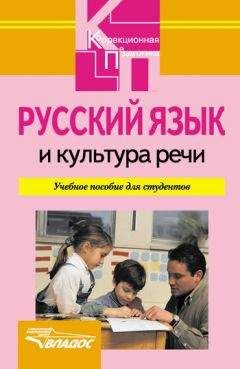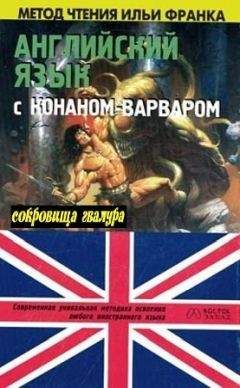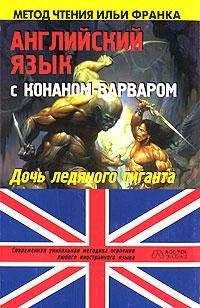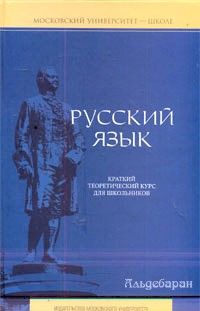Татьяна Бочкарева - Английский язык
Все авторские права соблюдены. Напишите нам, если Вы не согласны.
Описание книги "Английский язык"
Описание и краткое содержание "Английский язык" читать бесплатно онлайн.
Учебное пособие состоит из 4 разделов, каждый из которых предназначен для самостоятельного изучения материала учебного модуля по дисциплине «Иностранный язык».
1.2.2 Переведите следующие слова и выражения на русский язык:
1.2.3 Прочитайте следующие утверждения и укажите, являются ли они верными:
1) Her Majesty's Courts of Justice of England and Wales is the highest appeal court in almost all cases in England and Wales.
2) Her Majesty's Courts of Justice of England and Wales are established under Acts of the Parliament of the United Kingdom.
3) The United Kingdom has a single unified judicial system.
4) The Asylum and Immigration Tribunal's jurisdiction covers the whole of the United Kingdom.
5) The House of Lords is the highest appeal court in almost all cases in England and Wales.
6) The Privy Council is the highest court of appeal for a small number of Commonwealth countries.
7) The Court of Appeal deals only with appeals from other countries.
8) The Crown Court is a criminal court of both original and appellate jurisdiction.
9) The Crown Court was replaced by the Assizes whereby High Court judges would periodically travel around the country hearing cases.
10) Magistrates' Courts deal with offenders aged between the ages of 10 and 17 inclusive.
1.2.4 Переведите текст со словарем.
1.2.5 Составьте 10 вопросов к тексту.
1.2.6 Выберите ключевые предложения, перескажите текст, используя выражения: «The subject of the text is…», «The text deals…», «The main idea of the text is…», «The author comments on …».
1.3 Модуль 3. Текст Law
1.3.1 Прочитайте и переведите текст. Запомните следующие выражения латинского происхождения:
1) actus reus − противоправное действие, правонарушение (физическая, объективная сторона преступления);
2) mens rea – виновная воля;
3) dolus directus – прямой умысел;
4) dolus directus – случайный умысел;
5) pacta sunt servanda – договоры следует соблюдать.
1.3.2 Прочитайте текст и найдите ответы на вопросы:
1) What is law?
2) Can you say anything about the history of law?
Law is a system of rules, usually enforced through a set of institutions. It shapes politics, economics and society in numerous ways and serves as a primary social mediator of relations between people. Contract law regulates everything from buying a bus ticket to trading on derivatives markets. Property law defines rights and obligations related to the transfer and title of personal and real property. Trust law applies to assets held for investment and financial security, while tort law allows claims for compensation if a person's rights or property are harmed. If the harm is criminalized in a statute, criminal law offers means by which the state can prosecute the perpetrator. Constitutional law provides a framework for the creation of law, the protection of human rights and the election of political representatives. Administrative law is used to review the decisions of government agencies, while international law governs affairs between sovereign nation states in activities ranging from trade to environmental regulation or military action.
Legal systems elaborate rights and responsibilities in a variety of ways. A general distinction can be made between civil law jurisdictions, which codify their laws, and common law systems, where judge made law is not consolidated. In some countries, religion still informs the law. In a typical democracy, the central institutions for interpreting and creating law are the three main branches of government, namely an impartial judiciary, a democratic legislature, and an accountable executive. To implement and enforce the law and provide services to the public, a government's bureaucracy, the military and police are vital.
International law can refer to three things: public international law, private international law or conflict of laws and the law of supranational organizations. Public international law concerns relationships between sovereign nations. The sources for public international law development are custom, practice and treaties between sovereign nations, such as the Geneva Conventions. Public international law can be formed by international organizations, such as the United Nations, the International Labor Organization, the World Trade Organization, or the International Monetary Fund. Public international law has a special status as law because there is no international police force, and courts (e.g. the International Court of Justice as the primary UN judicial organ) lack the capacity to penalize disobedience. However, a few bodies, such as the WTO, have effective systems of binding arbitration and dispute resolution backed up by trade sanctions.
Constitutional and administrative laws govern the affairs of the state. Constitutional law concerns both the relationships between the executive, legislature and judiciary and the human rights or civil liberties of individuals against the state. Most jurisdictions, like the United States and France, have a single codified constitution, with a Bill of Rights. A few, like the United Kingdom, have no such document. A "constitution" is simply those laws which constitute the body politic, from statute, case law and convention.
The fundamental constitutional principle, inspired by John Locke, holds that the individual can do anything but that which is forbidden by law, and the state may do nothing but that which is authorized by law. Administrative law is the chief method for people to hold state bodies to account. People can apply for judicial review of actions or decisions by local councils, public services or government ministries, to ensure that they comply with the law.
Criminal law, also known as penal law, pertains to crimes and punishment. It thus regulates the definition of and penalties for offences found to have a sufficiently deleterious social impact but, in itself, makes no moral judgement on an offender nor imposes restrictions on society that physically prevents people from committing a crime in the first place. Investigating, apprehending, charging, and trying suspected offenders are regulated by the law of criminal procedure. The paradigm case of a crime lies in the proof, beyond reasonable doubt, that a person is guilty of two things. First, the accused must commit an act which is deemed by society to be criminal, or actus reus (guilty act). Second, the accused must have the requisite malicious intent to do a criminal act, or mens rea (guilty mind). However for so called "strict liability" crimes, an actus reus is enough. Criminal systems of the civil law tradition distinguish between intention in the broad sense (dolus directus and dolus eventualis), and negligence. Negligence does not carry criminal responsibility unless a particular crime provides for its punishment.
Examples of crimes include murder, assault, fraud and theft. In exceptional circumstances defenses can apply to specific acts, such as killing in self defense, or pleading insanity. Criminal law offences are viewed as offences against not just individual victims, but the community as well.
Contract law concerns enforceable promises, and can be summed up in the Latin phrase pacta sunt servanda (agreements must be kept). In common law jurisdictions, three key elements to the creation of a contract are necessary: offer and acceptance, consideration and the intention to create legal relations.
Tort law describes torts, sometimes called delicts, which are civil wrongs. Under the law of negligence, the most common form of tort, the injured party could potentially claim compensation for his injuries from the party responsible. Torts can also involve intentional acts, such as assault, battery or trespass.
Property law governs valuable things that people call 'theirs'. Real property, sometimes called 'real estate' refers to ownership of land and things attached to it. Personal property, refers to everything else; movable objects, such as computers, cars, jewelry, or intangible rights, such as stocks and shares. Land law forms the basis for most kinds of property law, and is the most complex. It concerns mortgages, rental agreements, licenses, covenants, easements and the statutory systems for land registration. Regulations on the use of personal property fall under intellectual property, company law, trusts and commercial law.
1.3.3 Переведите следующие слова и выражения на русский язык:
1.3.4 Прочитайте следующие утверждения и укажите, являются ли они верными:
1) Administrative law allows people to apply for judicial review of actions or decisions by local councils.
2) Constitutional law governs the affairs of the state.
3) Constitutional law is used to review the decisions of government agencies, while administrative law governs affairs between sovereign nation states.
4) Contract law can be summed up in the Latin phrase pacta sunt servanda (agreements must be kept).
5) Criminal law basically regulates the definition of and penalties for offences.
6) International law can refer to public international law, private international law or conflict of laws and the law of supranational organizations.
7) Land law governs valuable things like real property, personal property, or intangible rights.
8) Property law forms the basis for most kinds of land law, and is the most complex.
9) Tort law describes delicts, which are civil wrongs.
10) Trust law applies to assets held for investment and financial security.
1.3.5 Переведите текст со словарем.
1.3.6 Составьте 10 вопросов к тексту.
1.3.7 Выберите ключевые предложения, перескажите текст, используя выражения: «The subject of the text is…», «The text deals…», «The main idea of the text is…», «The author comments on …».
1.4 Модуль 4. Текст Prison. Types of prisons
1.4.1 Прочитайте и переведите текст.
1.4.2 Ответьте на вопросы:
1) Why are some people kept in prisons?
2) Which penalty is more effective – an imprisonment or a fine?
3) Who should be sentenced to a life imprisonment?
A prison is a place in which people are physically confined and deprived of a range of personal freedoms. Prisons are conventional institutions which form part of the criminal justice system of a country, such that imprisonment or incarceration is a legal penalty that may be imposed by the state for the commission of a crime.
A criminal suspect who has been charged with or is likely to be charged with criminal offense may be held on remand in prison if he is denied or unable to meet conditions of bail, or is unable or unwilling to post bail. A criminal defendant may also be held in prison while awaiting trial or a trial verdict. If found guilty, a defendant will be convicted and may receive a custodial sentence requiring imprisonment.
As well as convicted or suspected criminals, prisons may be used for internment of those not charged with a crime. Prisons may also be used as a tool of political repression to detain political prisoners, prisoners of conscience, and “enemies of the state”, particularly by authoritarian regimes. In times of war or conflict, prisoners of war may also be detained in prisons.
A prison system is the organizational arrangement of the provision and operation of prisons, and depending on their nature, may invoke a corrections system. Although people have been imprisoned throughout history, they have also regularly been able to perform prison escapes.
Male and female prisoners are typically kept in separate locations or separate prisons altogether. Prison accommodation, especially modern prisons in the developed world, are often divided into wings. A building holding more than one wing is known as a “hall”. Many prisons are divided into two sections, one containing prisoners before trial and the other containing convicted prisoners. Amongst the facilities that prisons may have are:
• A main entrance, which may be known as the “gatelodge” or “sally port.”
• A religious facility, which will often house chaplaincy offices and facilities for counselling of individuals or groups.
• An “education facility”, often including a library, providing adult education or continuing education opportunities.
• A gym or an exercise yard, a fenced, usually open-air-area which prisoners may use for recreational and exercise purposes.
• A healthcare facility or hospital.
• A segregation unit (also called a 'block' or “isolation cell”), used to separate unruly, dangerous, or vulnerable prisoners from the general population, also sometimes used as punishment (see solitary confinement).
• A section of vulnerable prisoners (VPs), or protective custody (PC) units, used to accommodate prisoners classified as vulnerable, such as sex offenders, former police officers, informants, and those that have gotten into debt or trouble with other prisoners.
• A section of safe cells, used to keep prisoners under constant visual observation, for example when considered at risk of suicide.
• A visiting area, where prisoners may be allowed restricted contact with relatives, friends, lawyers, or other people.
• A death row in some prisons, a section for criminals awaiting execution.
• A staff accommodation area, where staff and corrections officers live in the prison, typical of historical prisons.
• A service/facilities area housing support facilities like kitchens.
• Industrial or agricultural plants operated with convict labor.
• A recreational area containing a TV and pool table.
Prisons are normally surrounded by fencing, walls, earthworks, geographical features, or other barriers to prevent escape. Multiple barriers, concertina wire, electrified fencing, secured and defensible main gates, armed guard towers, lighting, motion sensors, dogs, and roving patrols may all also be present depending on the level of security. Remotely controlled doors, CCTV monitoring, alarms, cages, restraints, nonlethal and lethal weapons, riot-control gear and physical segregation of units and prisoners may all also be present within a prison to monitor and control the movement and activity of prisoners within the facility.
Juvenile prisons: prisons for juveniles (people under 17 or 18, depending on the jurisdiction) are known as young offender institutes or similar designation and hold minors who have been remanded into custody or serving sentence. Many countries have their own age of criminal responsibility in which children are deemed legally responsible for their actions for a crime.
Подписывайтесь на наши страницы в социальных сетях.
Будьте в курсе последних книжных новинок, комментируйте, обсуждайте. Мы ждём Вас!
Похожие книги на "Английский язык"
Книги похожие на "Английский язык" читать онлайн или скачать бесплатно полные версии.
Мы рекомендуем Вам зарегистрироваться либо войти на сайт под своим именем.
Отзывы о "Татьяна Бочкарева - Английский язык"
Отзывы читателей о книге "Английский язык", комментарии и мнения людей о произведении.






